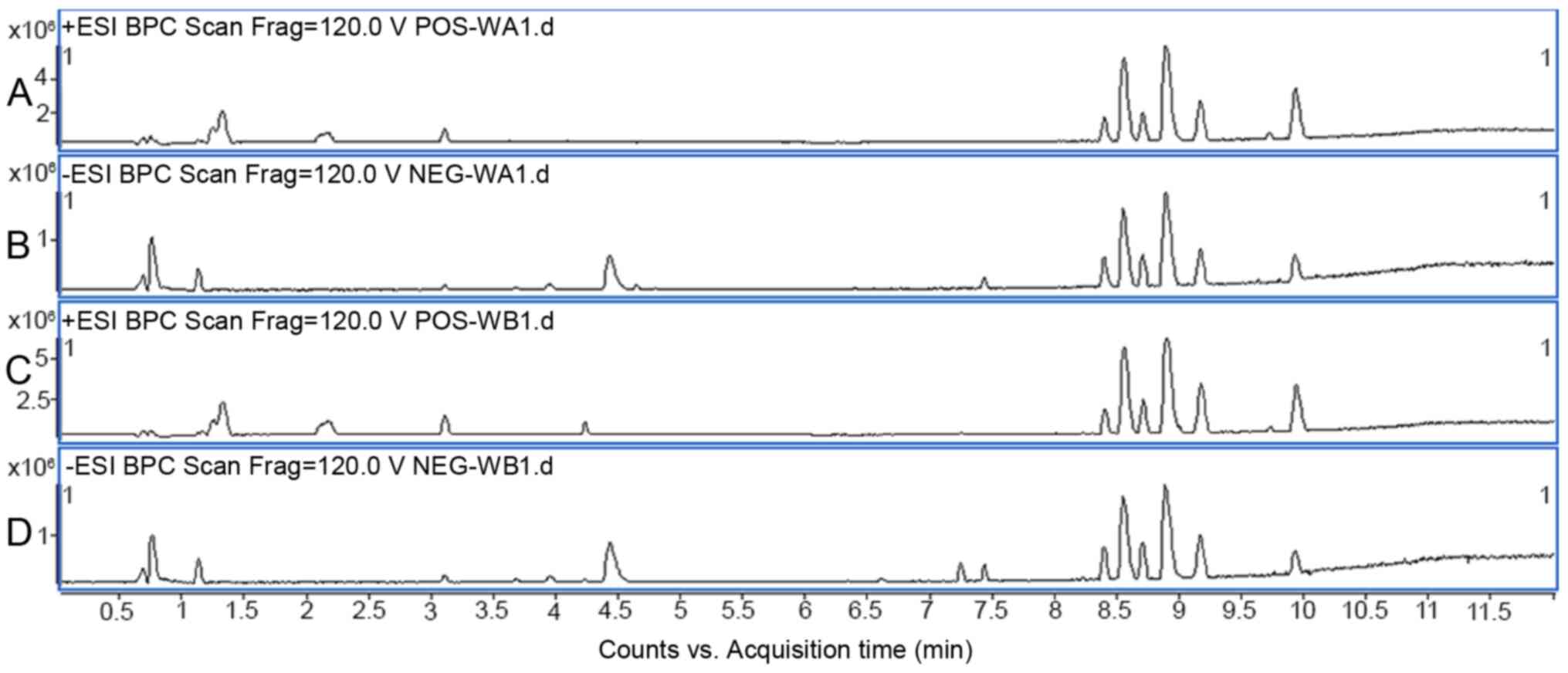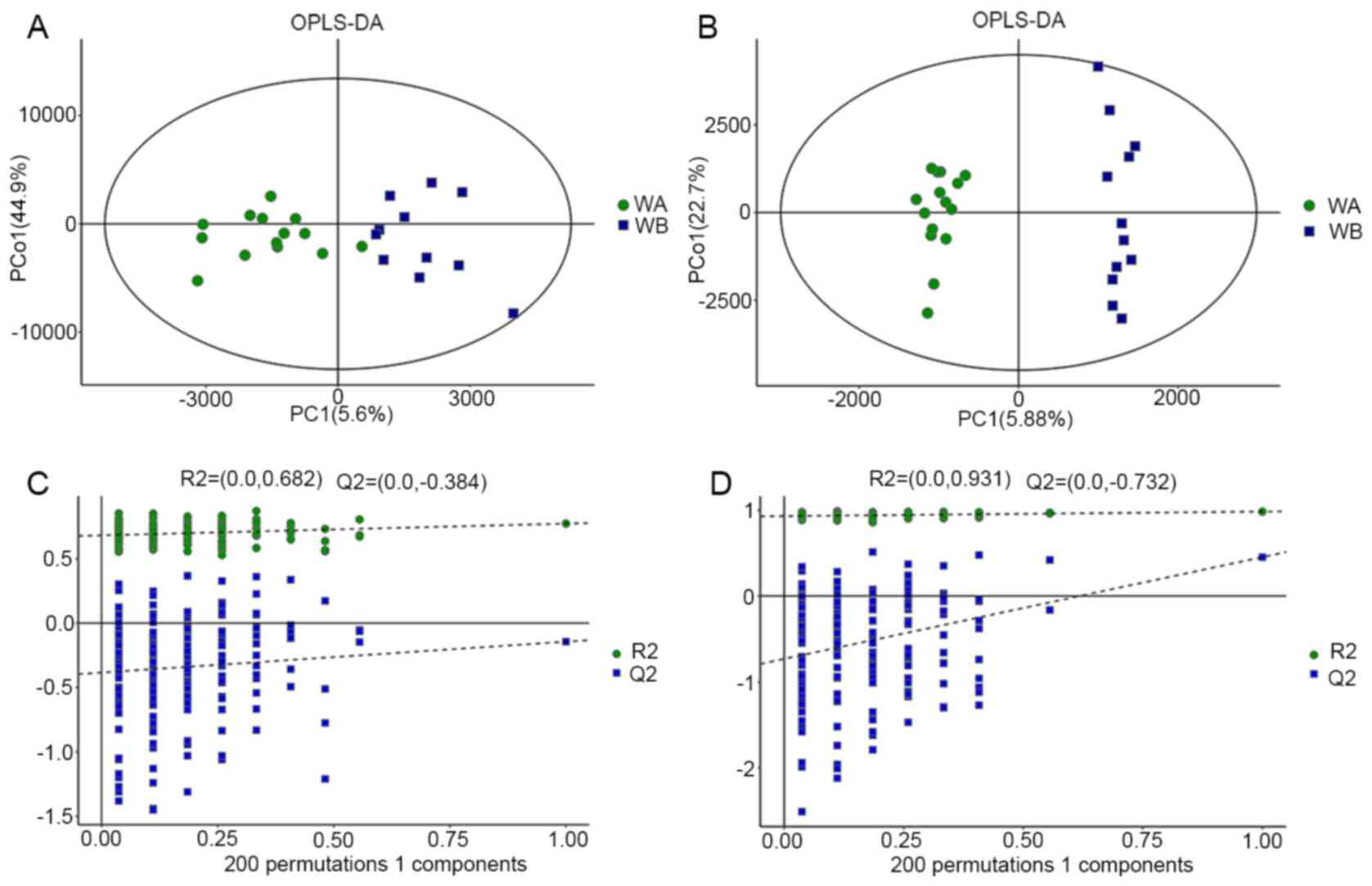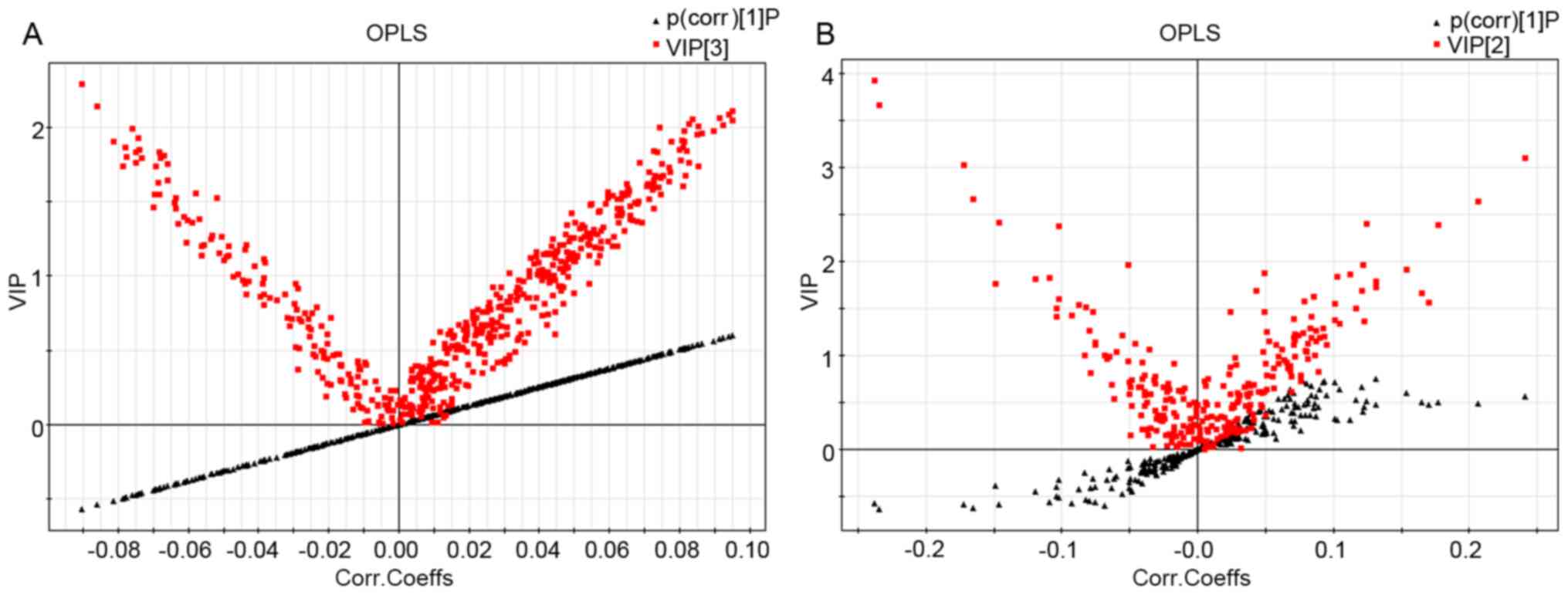|
1
|
Haylock PJ and Hart LK: Fatigue in
patients receiving localized radiation. Cancer Nursing. 2:461–467.
1979.PubMed/NCBI
|
|
2
|
Wu HS and Harden JK: Symptom burden and
quality of life in survivorship: A review of the literature. Cancer
Nurs. 38:E29–E54. 2015.PubMed/NCBI View Article : Google Scholar
|
|
3
|
Arring NM, Barton DL, Brooks T and Zick
SM: Integrative therapies for cancer-related fatigue. Cancer J.
25:349–356. 2019.PubMed/NCBI View Article : Google Scholar
|
|
4
|
Bussing A, Zhai XF, Peng WB and Ling CQ:
Psychosocial and spiritual needs of patients with chronic diseases:
Validation of the chinese version of the spiritual needs
questionnaire. J Integr Med. 11:106–115. 2013.PubMed/NCBI View Article : Google Scholar
|
|
5
|
Rüffer JU, Flechtner H, Tralls P, Josting
A, Sieber M, Lathan B and Diehl V: German Hodgkin Lymphoma Study
Group. Fatigue in long-term survivors of Hodgkin's lymphoma; a
report from the German Hodgkin Lymphoma Study Group (GHSG). Eur J
Cancer. 39:2179–2186. 2003.PubMed/NCBI View Article : Google Scholar
|
|
6
|
Jim HS, Sutton SK, Jacobsen PB, Martin PJ,
Flowers ME and Lee SJ: Risk factors for depression and fatigue
among survivors of hematopoietic cell transplantation. Cancer.
122:1290–1297. 2016.PubMed/NCBI View Article : Google Scholar
|
|
7
|
Bower JE, Ganz PA, Desmond KA, Bernaards
C, Rowland JH, Meyerowitz BE and Belin TR: Fatigue in long-term
breast carcinoma survivors: A longitudinal investigation. Cancer.
106:751–758. 2006.PubMed/NCBI View Article : Google Scholar
|
|
8
|
Eyob T, Ng T, Chan R and Chan A: Impact of
chemotherapy on cancer-related fatigue and cytokines in 1312
patients: A systematic review of quantitative studies. Curr Opin
Support Palliat Care. 10:165–179. 2016.PubMed/NCBI View Article : Google Scholar
|
|
9
|
Bower JE and Lamkin DM: Inflammation and
cancer-related fatigue: Mechanisms, contributing factors, and
treatment implications. Brain Behav Immun. 30:S48–S57.
2013.PubMed/NCBI View Article : Google Scholar
|
|
10
|
Orre IJ, Murison R, Dahl AA, Ueland T,
Aukrust P and Fosså SD: Levels of circulating interleukin-1
receptor antagonist and C-reactive protein in long-term survivors
of testicular cancer with chronic cancer-related fatigue. Brain
Behav Immun. 23:868–874. 2009.PubMed/NCBI View Article : Google Scholar
|
|
11
|
Schmidt ME, Semik J, Habermann N,
Wiskemann J, Ulrich CM and Steindorf K: Cancer-related fatigue
shows a stable association with diurnal cortisol dysregulation in
breast cancer patients. Brain Behav Immun. 52:98–105.
2016.PubMed/NCBI View Article : Google Scholar
|
|
12
|
Cheng S, Shah SH, Corwin EJ, Fiehn O,
Fitzgerald RL, Gerszten RE, Illig T, Rhee EP, Srinivas PR, Wang TJ,
et al: Potential impact and study considerations of metabolomics in
cardiovascular health and disease: A scientific statement from the
american heart association. Circ Cardiovasc Genet.
10(e000032)2017.PubMed/NCBI View Article : Google Scholar
|
|
13
|
Li N, Liu Y, Li W, Zhou L, Li Q, Wang X
and He P: A UPLC/MS-based metabolomics investigation of the
protective effect of ginsenosides Rg1 and Rg2 in mice with
Alzheimer's disease. J Ginseng Res. 40:9–17. 2016.PubMed/NCBI View Article : Google Scholar
|
|
14
|
Edge SB and Compton CC: The American Joint
Committee on Cancer: The 7th edition of the AJCC cancer staging
manual and the future of TNM. Ann Surg Oncol. 17:1471–1474.
2010.PubMed/NCBI View Article : Google Scholar
|
|
15
|
Mock V, Atkinson A, Barsevick A, Cella D,
Cimprich B, Cleeland C, Donnelly J, Eisenberger MA, Escalante C,
Hinds P, et al: NCCN practice guidelines for cancer-related
fatigue. Oncology (Williston Park). 14:151–161. 2000.PubMed/NCBI
|
|
16
|
Piper BF, Dibble SL, Dodd MJ, Weiss MC,
Slaughter RE and Paul SM: The revised Piper Fatigue Scale:
Psychometric evaluation in women with breast cancer. Oncol Nurs
Forum. 25:677–684. 1998.PubMed/NCBI
|
|
17
|
Gachet MS, Rhyn P, Bosch OG, Quednow BB
and Gertsch J: A quantitiative LC-MS/MS method for the measurement
of arachidonic acid, prostanoids, endocannabinoids,
N-acylethanolamines and steroids in human plasma. J Chromatogr B
Analyt Technol Biomed Life Sci. 976-977:6–18. 2015.PubMed/NCBI View Article : Google Scholar
|
|
18
|
Stephenson DJ, MacKnight HP, Hoeferlin LA,
Park M, Allegood J, Cardona CL and Chalfant CE: A rapid and
adaptable lipidomics method for quantitative UPLC-mass
spectrometric analysis of phosphatidylethanolamine and
phosphatidylcholine in vitro, and in cells. Anal Methods.
11:1765–1776. 2019.PubMed/NCBI View Article : Google Scholar
|
|
19
|
Murakami M, Taketomi Y, Sato H and
Yamamoto K: Secreted phospholipase A2 revisited. J Biochem.
150:233–255. 2011.PubMed/NCBI View Article : Google Scholar
|
|
20
|
Dong Q, Patel M, Scott KF, Graham GG,
Russell PJ and Sved P: Oncogenic action of phospholipase A2 in
prostate cancer. Cancer Lett. 240:9–16. 2006.PubMed/NCBI View Article : Google Scholar
|
|
21
|
Yamashita S, Ogawa M, Sakamoto K, Abe T,
Arakawa H and Yamashita J: Elevation of serum group II
phospholipase A2 levels in patients with advanced cancer. Clin Chim
Acta. 228:91–99. 1994.PubMed/NCBI View Article : Google Scholar
|
|
22
|
Ruff P, Chasen MR, Long JE and van
Rensburg CE: A phase II study of oral clofazimine in unresectable
and metastatic hepatocellular carcinoma. Ann Oncol. 9:217–219.
1998.PubMed/NCBI View Article : Google Scholar
|
|
23
|
Szlasa W, Zendran I, Zalesińska A, Tarek M
and Kulbacka J: Lipid composition of the cancer cell membrane. J
Bioenerg Biomembr. 52:321–342. 2020.PubMed/NCBI View Article : Google Scholar
|
|
24
|
Bower JE, Ganz PA and Aziz N: Altered
cortisol response to psychologic stress in breast cancer survivors
with persistent fatigue. Psychosom Med. 67:277–280. 2005.PubMed/NCBI View Article : Google Scholar
|
|
25
|
Schaloske RH and Dennis EA: The
phospholipase A2 superfamily and its group numbering system.
Biochim Biophys Acta. 1761:1246–1259. 2006.PubMed/NCBI View Article : Google Scholar
|
|
26
|
Khodadad JK, Waugh RE, Podolski JL,
Josephs R and Steck TL: Remodeling the shape of the skeleton in the
intact red cell. Biophys J. 70:1036–1044. 1996.PubMed/NCBI View Article : Google Scholar
|
|
27
|
Callegari GA, Novaes JS, Neto GR, Dias I,
Garrido ND and Dani C: Creatine kinase and lactate dehydrogenase
responses after different resistance and aerobic exercise
protocols. J Hum Kinet. 58:65–72. 2017.PubMed/NCBI View Article : Google Scholar
|
|
28
|
Kolak A, Kamińska M, Wysokińska E, Surdyka
D, Kieszko D, Pakieła M and Burdan F: The problem of fatigue in
patients suffering from neoplastic disease. Contemp Oncol (Pozn).
21:131–135. 2017.PubMed/NCBI View Article : Google Scholar
|
|
29
|
Enkavi G, Javanainen M, Kulig W, Róg T and
Vattulainen I: Multiscale simulations of biological membranes: The
challenge to understand biological phenomena in a living substance.
Chem Rev. 119:5607–5774. 2019.PubMed/NCBI View Article : Google Scholar
|
|
30
|
Theofilidis G, Bogdanis GC, Koutedakis Y
and Karatzaferi C: Monitoring exercise-induced muscle fatigue and
adaptations: Making sense of popular or emerging indices and
biomarkers. Sports (Basel). 6(153)2018.PubMed/NCBI View Article : Google Scholar
|
|
31
|
Larsson L, Degens H, Li M, Salviati L, Lee
YI, Thompson W, Kirkland JL and Sandri M: Sarcopenia: Aging-related
loss of muscle mass and function. Physiol Rev. 99:427–511.
2019.PubMed/NCBI View Article : Google Scholar
|
|
32
|
Konig D, Wagner KH, Elmadfa I and Berg A:
Exercise and oxidative stress: Significance of antioxidants with
reference to inflammatory, muscular, and systemic stress. Exerc
Immunol Rev. 7:108–133. 2001.PubMed/NCBI
|
|
33
|
Wang D and Dubois RN: Eicosanoids and
cancer. Nat Rev Cancer. 10:181–193. 2010.PubMed/NCBI View
Article : Google Scholar
|
|
34
|
Ames BN, Cathcart R, Schwiers E and
Hochstein P: Uric acid provides an antioxidant defense in humans
against oxidant- and radical-caused aging and cancer: A hypothesis.
Proc Natl Acad Sci USA. 78:6858–6862. 1981.PubMed/NCBI View Article : Google Scholar
|
|
35
|
Yu ZF, Bruce-Keller AJ, Goodman Y and
Mattson MP: Uric acid protects neurons against excitotoxic and
metabolic insults in cell culture, and against focal ischemic brain
injury in vivo. J Neurosci Res. 53:613–625. 1998.PubMed/NCBI View Article : Google Scholar
|
|
36
|
Schultz M, Leist M, Elsner A and
Brigelius-Flohé R: Alpha-carboxyethyl-6-hydroxychroman as urinary
metabolite of vitamin E. Methods Enzymol. 282(297)1997.PubMed/NCBI View Article : Google Scholar
|
|
37
|
Hill MN, Hillard CJ, Bambico FR, Patel S,
Gorzalka BB and Gobbi G: The therapeutic potential of the
endocannabinoid system for the development of a novel class of
antidepressants. Trends Pharmacol Sci. 30:484–493. 2009.PubMed/NCBI View Article : Google Scholar
|
|
38
|
Mangieri RA and Piomelli D: Enhancement of
endocannabinoid signaling and the pharmacotherapy of depression.
Pharmacol Res. 56:360–366. 2007.PubMed/NCBI View Article : Google Scholar
|
|
39
|
Lutz B: Endocannabinoid signals in the
control of emotion. Curr Opin Pharmacol. 9:46–52. 2009.PubMed/NCBI View Article : Google Scholar
|
|
40
|
Rubino T, Guidali C, Vigano D, Realini N,
Valenti M, Massi P and Parolaro D: CB1 receptor stimulation in
specific brain areas differently modulate anxiety-related
behaviour. Neuropharmacology. 54:151–160. 2008.PubMed/NCBI View Article : Google Scholar
|
|
41
|
Hill MN, Patel S, Carrier EJ, Rademacher
DJ, Ormerod BK, Hillard CJ and Gorzalka BB: Downregulation of
endocannabinoid signaling in the hippocampus following chronic
unpredictable stress. Neuropsychopharmacology. 30:508–515.
2005.PubMed/NCBI View Article : Google Scholar
|
|
42
|
Rossi S, De Chiara V, Musella A,
Kusayanagi H, Mataluni G, Bernardi G, Usiello A and Centonze D:
Chronic psychoemotional stress impairs
cannabinoid-receptor-mediated control of GABA transmission in the
striatum. J Neurosci. 28:7284–7292. 2008.PubMed/NCBI View Article : Google Scholar
|
|
43
|
Kobuchi S, Ito Y, Okada K, Imoto K, Kuwano
S and Takada K: Pharmacokinetic/pharmacodynamic modeling of
5-fluorouracil by using a biomarker to predict tumor growth in a
rat model of colorectal cancer. J Pharm Sci. 102:2056–2067.
2013.PubMed/NCBI View Article : Google Scholar
|
|
44
|
Hatler CW, Grove C, Strickland S, Barron S
and White BD: The effect of completing a surrogacy information and
decision-making tool upon admission to an intensive care unit on
length of stay and charges. J Clin Ethics. 23:129–138.
2012.PubMed/NCBI
|

















